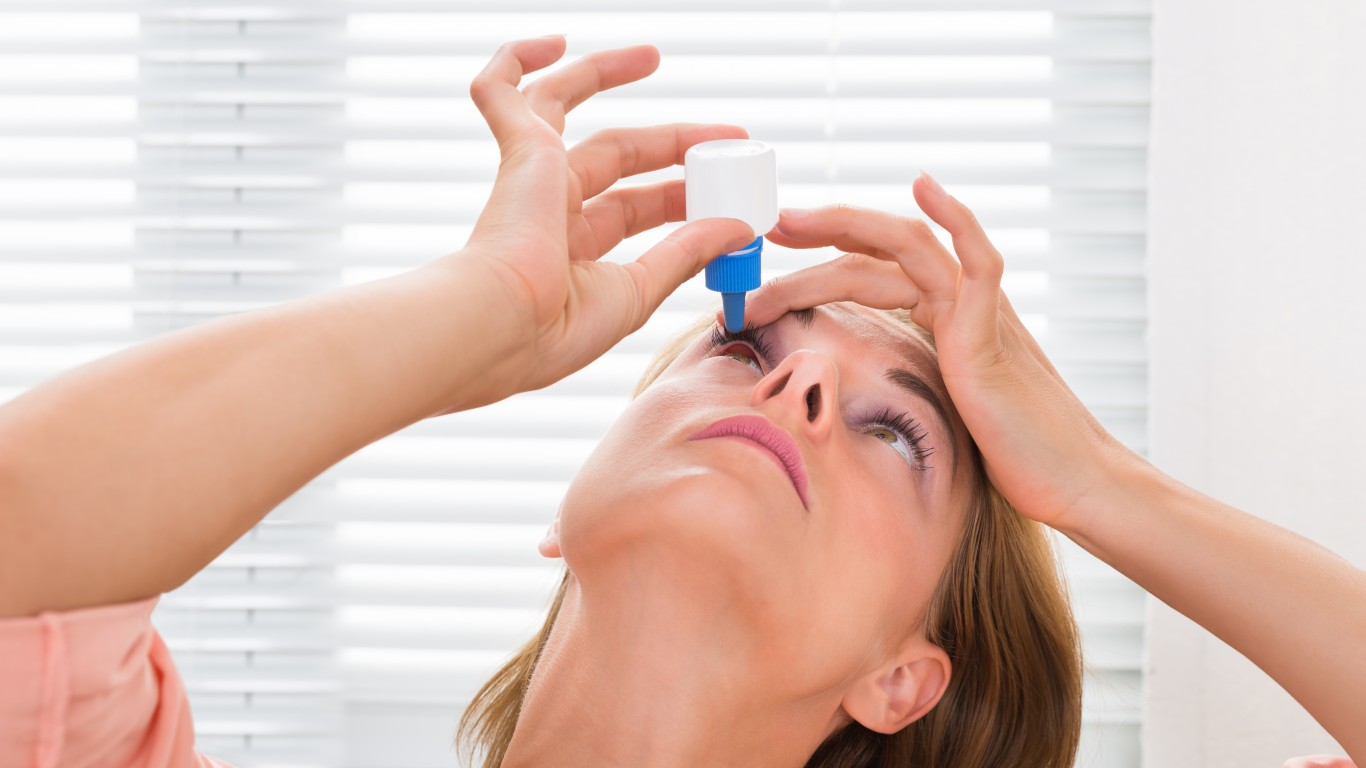
This post may contain links from our sponsors and affiliates, and Flywheel Publishing may receive
compensation for actions taken through them.
It’s commonly believed that as people get older their eyesight inevitably gets worse. This is technically true, but a healthy lifestyle can significantly delay the development of eye health problems.
Some common age-related eye conditions include glaucoma, dry eyes, age-related macular degeneration — which is a leading cause of blindness — and cataracts.
Many factors affect the eyes — ultraviolet exposure, radiation, some medications. But the single worst thing you can do to cause lasting damage to your eyes is smoke, according to Dr. Scott. B. Sheren, chair of the department of ophthalmology at ProHEALTHcare. An unhealthy diet is second.
“You want to avoid bad stuff like saturated and trans fats, which cause oxidative stress on the body, and want to replace them with polyunsaturated fats, omega-3s, and plant-based foods,” he noted. “It’s all about removing the garbage and adding the good stuff.”
Some foods, including eggs and supplements, are controversial topics when it comes to eye health — often with inconsistent scientific evidence of their health benefits. But there is a consensus around other foods — here are 29 healthy eating habits that will change your life.
Click here to see 25 good and bad foods for your eyes.
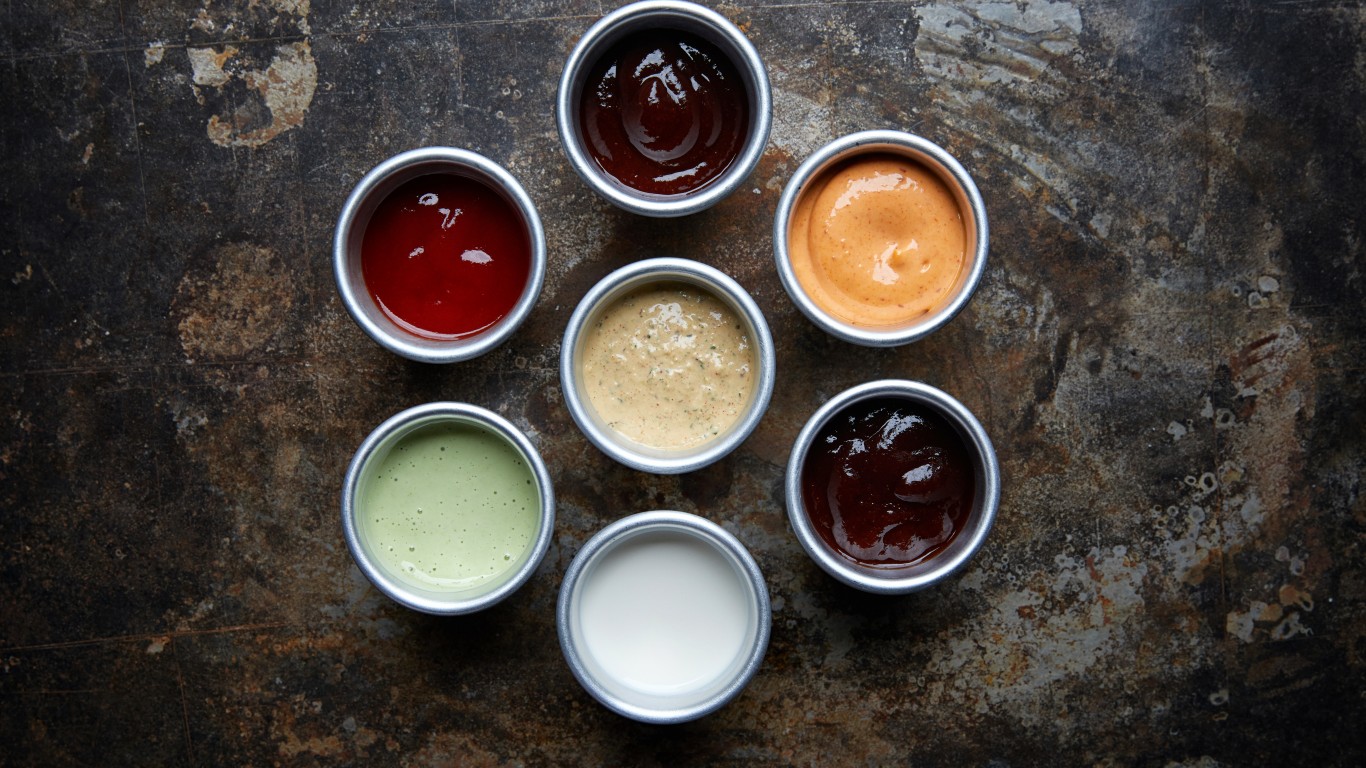
Bad: Condiments
Adding condiments to a meal is a common way to enhance its flavor. But many of them — ketchup, barbecue sauce, mayo, to name a few — often contain artificial additives and are loaded with salt and sugar. You want to avoid these for overall health, including the eyes, Sheren said. A lot of sugar in your body can cause blood vessels in the eyes to narrow. As a result, fluid may build up because it can’t drain properly. This may eventually cause glaucoma.
[in-text-ad]
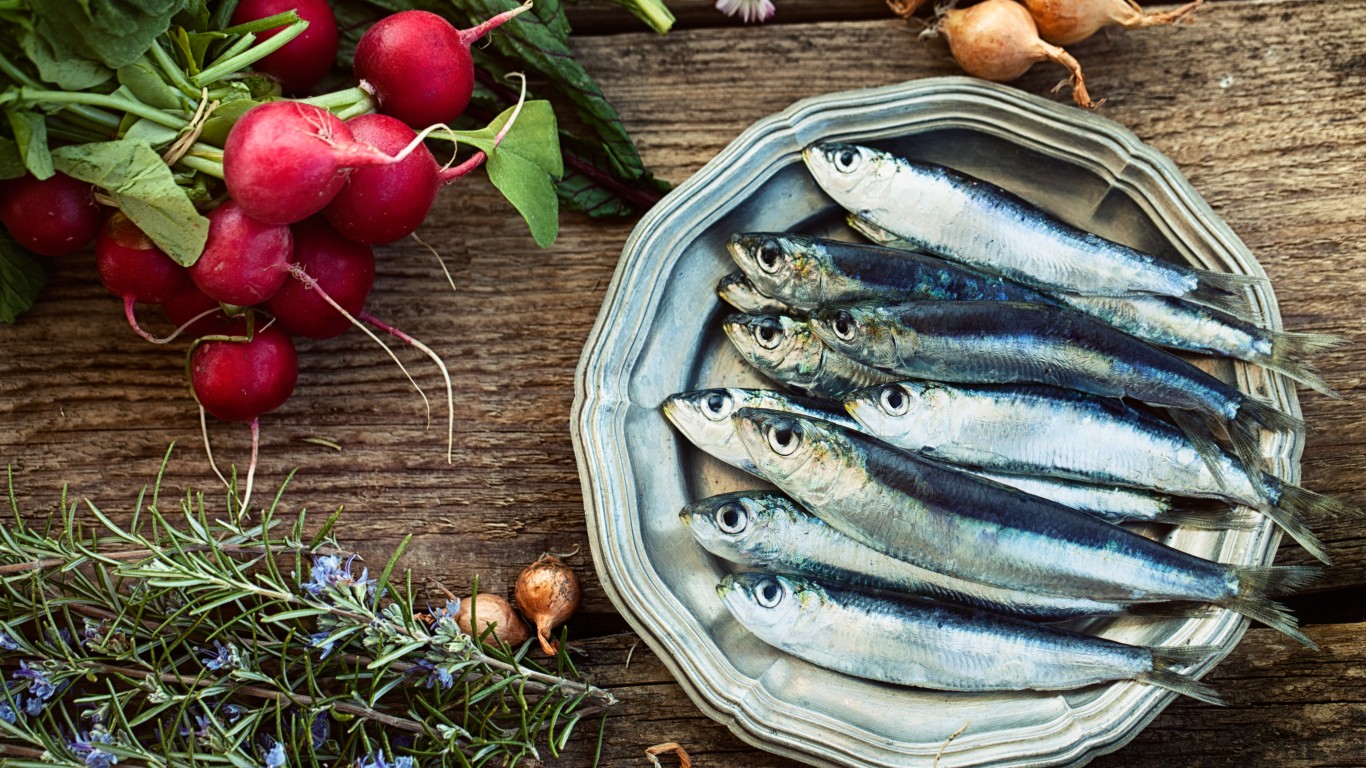
Good: Sardines
Fish, in general, is good for the eyes because it’s a good source of omega-3 fatty acids, which help protect eyes from macular degeneration, Dr. Sheren noted. Omega-3s also help with proper drainage of intraocular fluid, which is the fluid in the front part of the eyes. It’s best to go for cold-water fish like sardines, herring, and salmon.
Bad: Big fish
Whenever you pick fish you should go for smaller fish, Dr. Sheren said. This is because of mercury, which can damage the eyes as it accumulates in the cells that respond to light. Mercury gets stored and bioaccumulates when fish consume it, which is why bigger fish can be riskier to eat. Tuna, especially canned tuna, is popular in the American diet, but it’s a big fish so you may want to avoid it. Other big fish to avoid include tilefish, shark, swordfish, and mackerel.
Good: Nuts
Nuts are generally a good food option for the eyes. “Every nut has its benefits,” Dr. Sheren said. Walnuts, cashews, peanuts, and hazelnuts are just a few examples of nuts that are rich in omega-3 fatty acids. They are also rich in vitamin E, which protects the eyes from age-related damage, he noted.
[in-text-ad-2]

Bad: Deli and other processed meats
Deli and processed meats are generally bad for your health, Sheren said. “They are high in salt and saturated fat.” High salt intake increases blood pressure, which may result in a temporary increase in eye pressure. The effects of high blood sodium levels on eye health are still debated but some evidence suggests that it increases the risk of cataracts and damage to the retina.
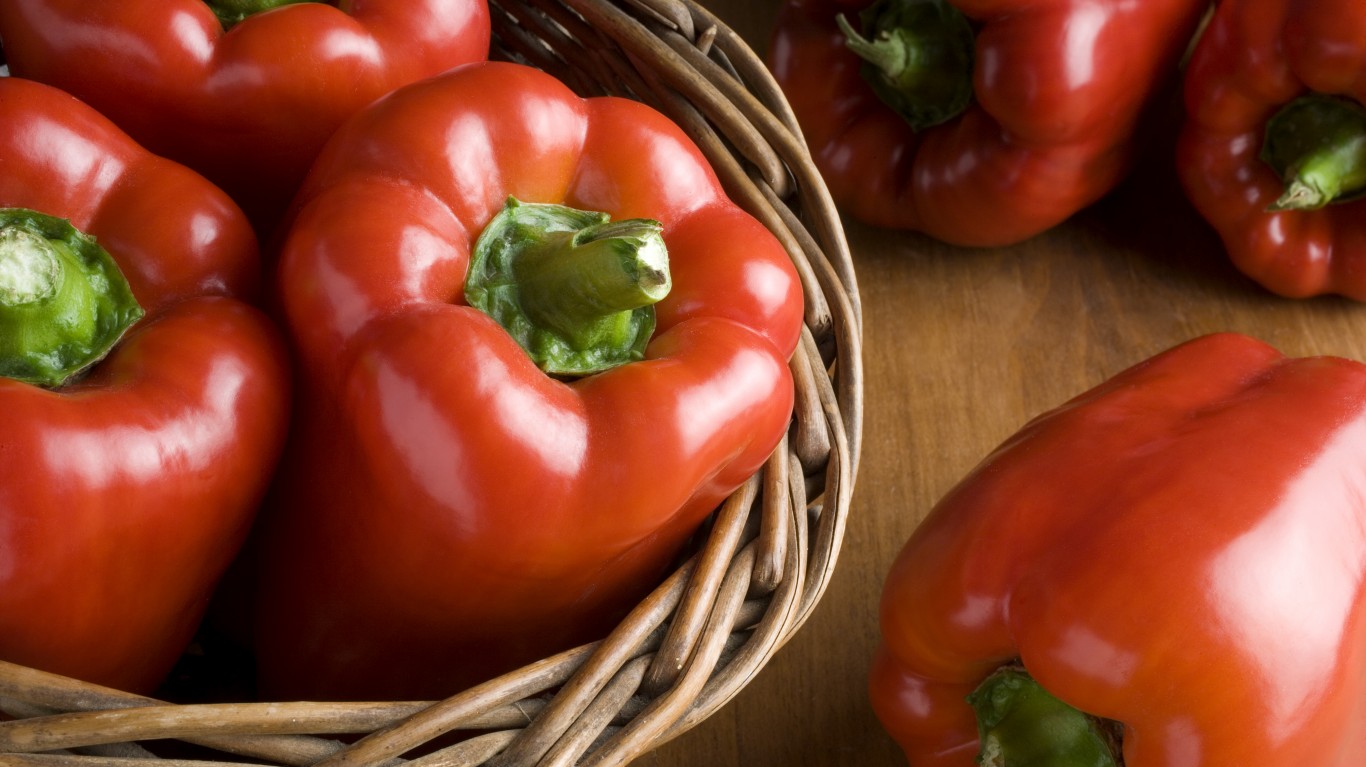
Good: Red peppers
Bell peppers are an overall healthy snack, regardless of color. But red bell peppers have more vitamin C than the rest. Just one small pepper has about 95 mg of vitamin C, slightly more than the daily recommended amount. Vitamin C helps blood vessels in the eye stay healthy, Sheren noted. Red bell peppers are also a rich source of vitamin E, which some studies have shown to reduce the progression of age-related macular degeneration and cataract formation, according to the American Optometric Association.
[in-text-ad]
Bad: Fries
Fries are on lists of worst foods for overall health because of the oil the potatoes are fried in and also simply because they are fried, Sheren said. Regardless of what oil you use, cooking the vegetables will result in almost all of its nutritional value disappearing. The trans fats in fries may build up and clog the arteries, resulting in high blood pressure. Hypertension may lead to eye problems such as hypertensive retinopathy.
Good: Orange fruits
Orange fruits are an excellent source of vitamin C, which is key for eye health. They are also rich in two anti-inflammatory carotenoids — lutein and zeaxanthin, which play a crucial role in protecting the eyes from harmful wavelengths by absorbing excess light energy, Sheren explained. There are more than 600 carotenoids found in nature, but only these two are stored in high quantities in the retina, according to the American Optometric Association.

Bad: Sweetened drinks
Sweetened drinks have usually been sweetened with high-fructose corn syrup or other artificial sugars. They increase the risk of high blood pressure and high cholesterol levels, Sheren said. Too much sugar in your blood may hurt the small vessels that supply blood to the retina by causing them to swell. This may eventually lead to vision loss.
[in-text-ad-2]
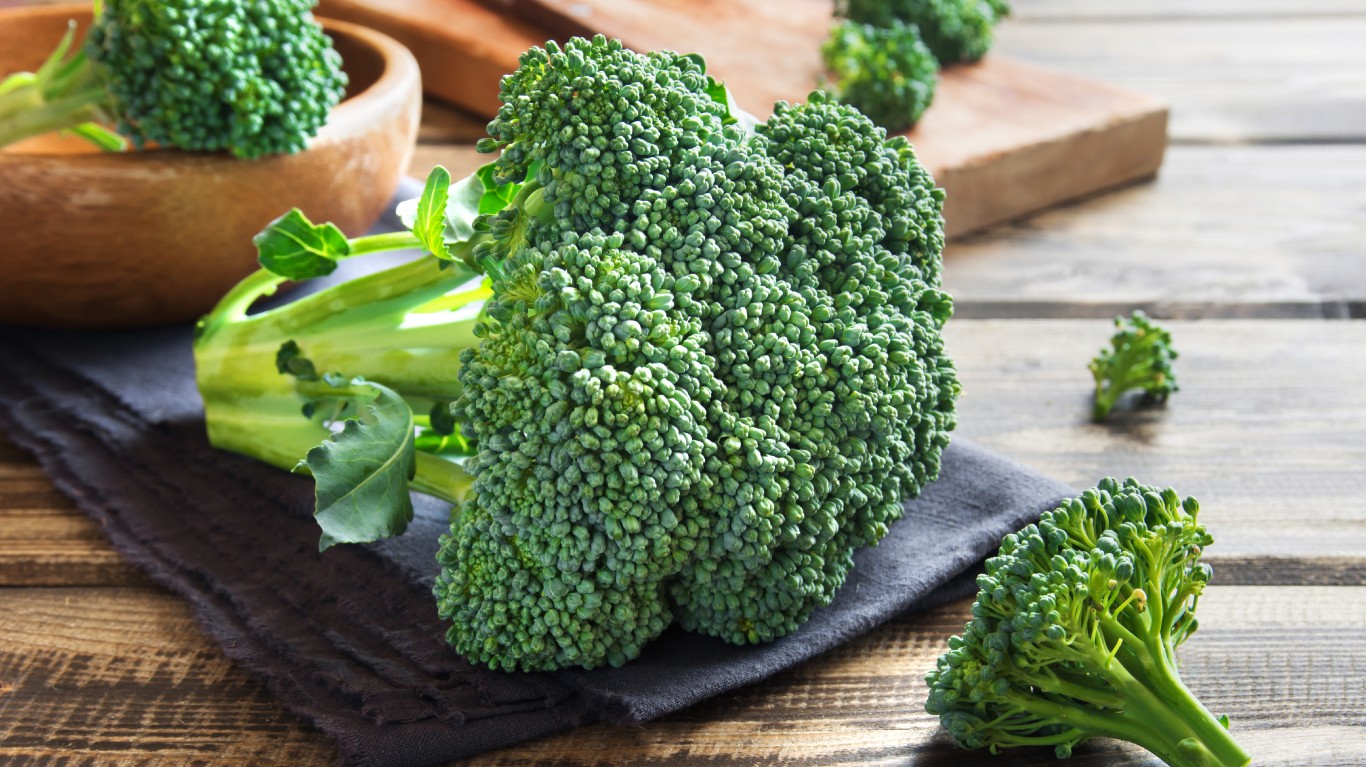
Good: Broccoli
Broccoli is a great source of bioflavonoids, which are a general category of macronutrients that help keep not just the eyes but the whole body healthy, Sheren said. There is some evidence that a particular antioxidant found in broccoli, sulforaphane, protects the eyes from oxidative stress caused by light, thus lowering the risk of age-related macular degeneration and blindness.
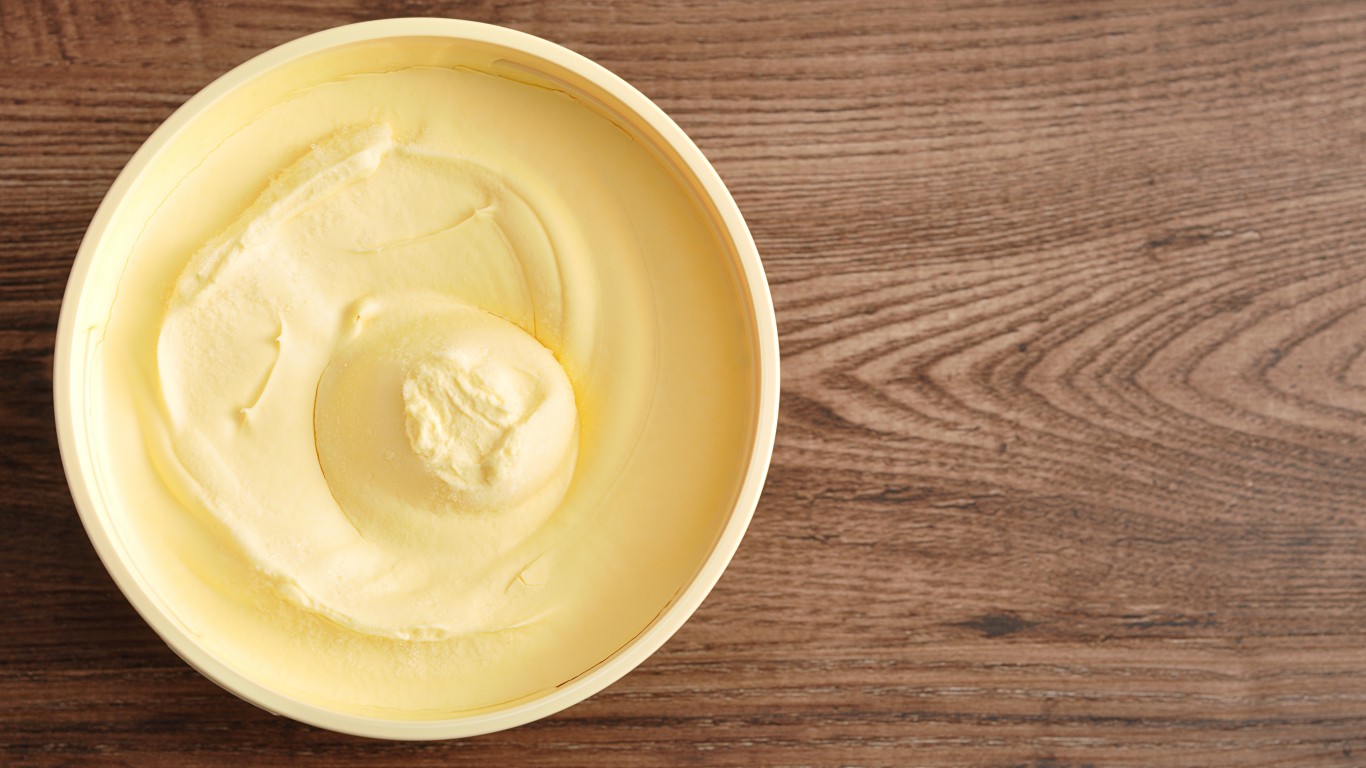
Bad: Margarine
Contrary to popular belief, margarine is not a healthy alternative to butter. Margarine contains a lot of trans fats, and that’s not good for the eyes, Sheren said. Trans fats are pro-inflammatory, can increase bad cholesterol levels, and lead to the narrowing of the blood vessels, he added.
[in-text-ad]
Good: Berries
Berries are a great source of antioxidants, which you always want in your food because of their many beneficial properties, including reducing inflammation in the tissue of the eye, Sheren said. They protect the blood vessels and help cell metabolism, he noted. Berries contain anthocyanins, a type of flavonoids that support eye function, he noted.
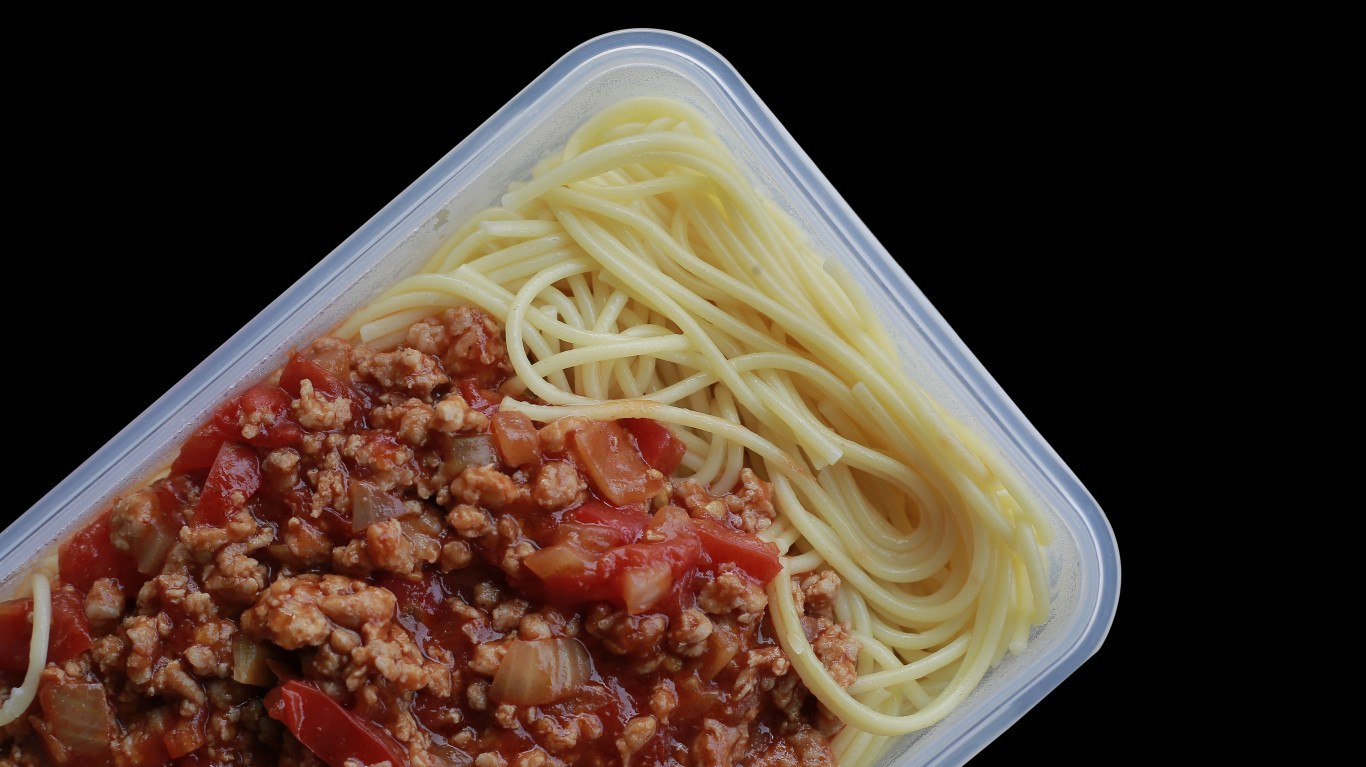
Bad: Ready-to-eat meals
Ready-to-eat meals are convenient but contain too much of several ingredients you simply don’t want in your body — sugar and salt. Salt retains water. When you have too much of it, the body swells. As a result, blood volume increases and the heart works harder to pump blood, leading to high blood pressure. This puts pressure on blood vessels, including those in the eyes, possibly damaging them over time.
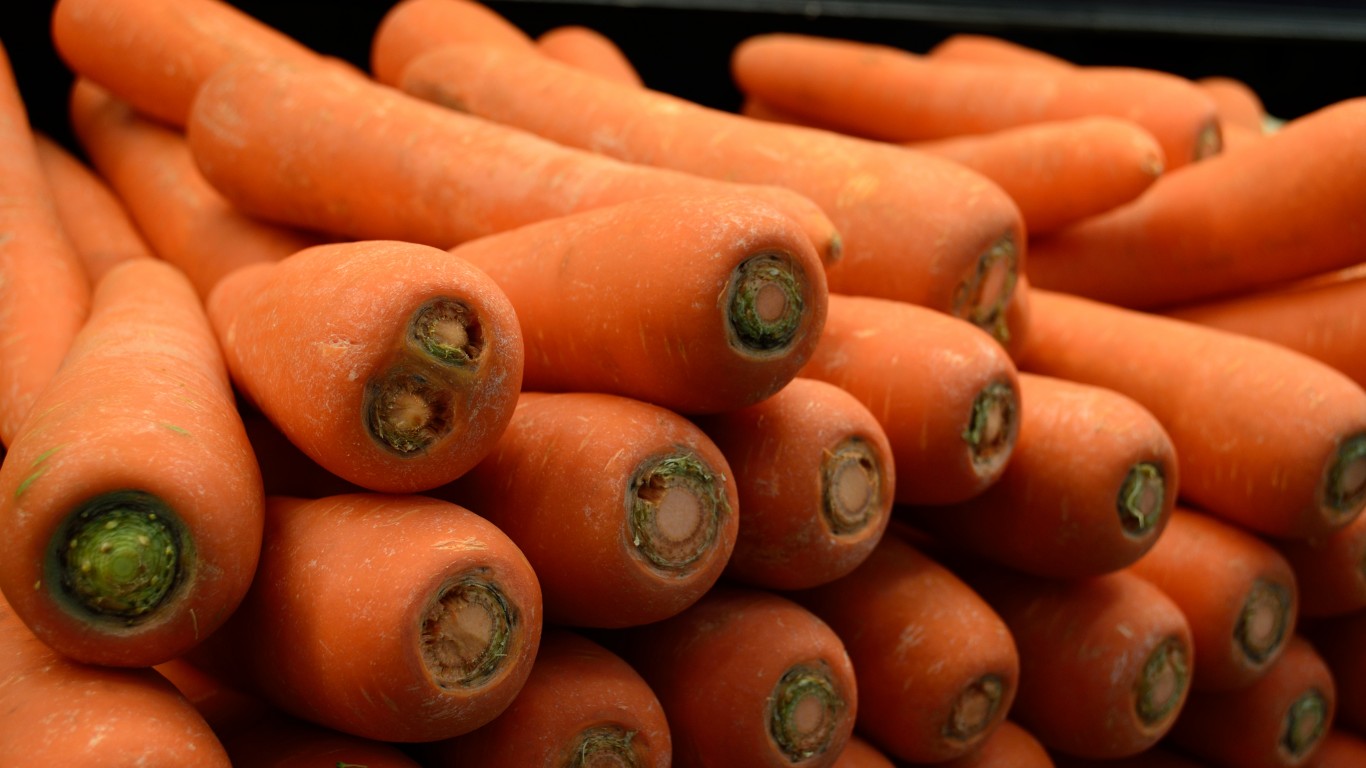
Good: Carrots
Carrots, like many orange fruits and vegetables, are rich in lutein and carotenoids that benefit the eyes by protecting them against age-related degenerative eye diseases, Shereen said. “We are big on carrots in my family,” he added. The body converts carotene into vitamin A, which helps the eyes process light. While vitamin A is important to keep your vision healthy, it won’t improve it if it’s already been damaged.
[in-text-ad-2]
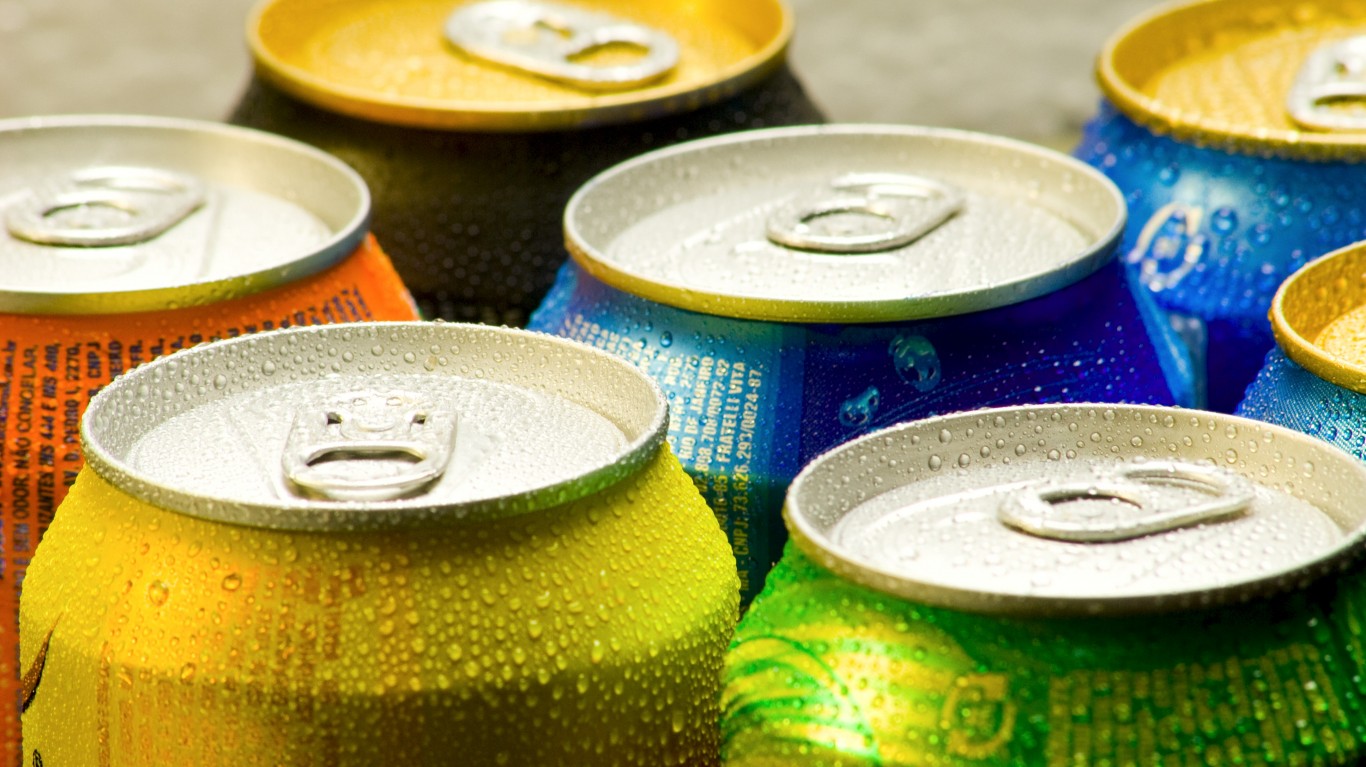
Bad: Soda
A study of more than 600 people, published last year in the Clinical and Experimental Ophthalmology Journal, found that diabetics who consumed more than four cans of diet soda a week were twice as likely to have vision problems, including blindness. Diet soda may not be a safer option. Artificial sweeteners in diet soda may lead to insulin spikes, which worsens insulin sensitivity over time, increasing the risk of developing type 2 diabetes, which may lead to damage to the retina.
Good: Flaxseeds
Seeds benefit the eyes, Sheren said. Flaxseeds, a popular addition in smoothies, contain a lot of omega-3 healthy fats, which help the body drain the intraocular fluid from the eye, decreasing the risk of glaucoma. Flaxseeds are also rich in antioxidants and fiber, which may also help lower the risk of diabetes, cancer, and heart disease.
[in-text-ad]
Good: Leafy greens
Leafy green vegetables are very good for the eyes, Sheren said. They contain high amounts of lutein and zeaxanthin, which help prevent age-related eye diseases such as cataracts and macular degeneration.
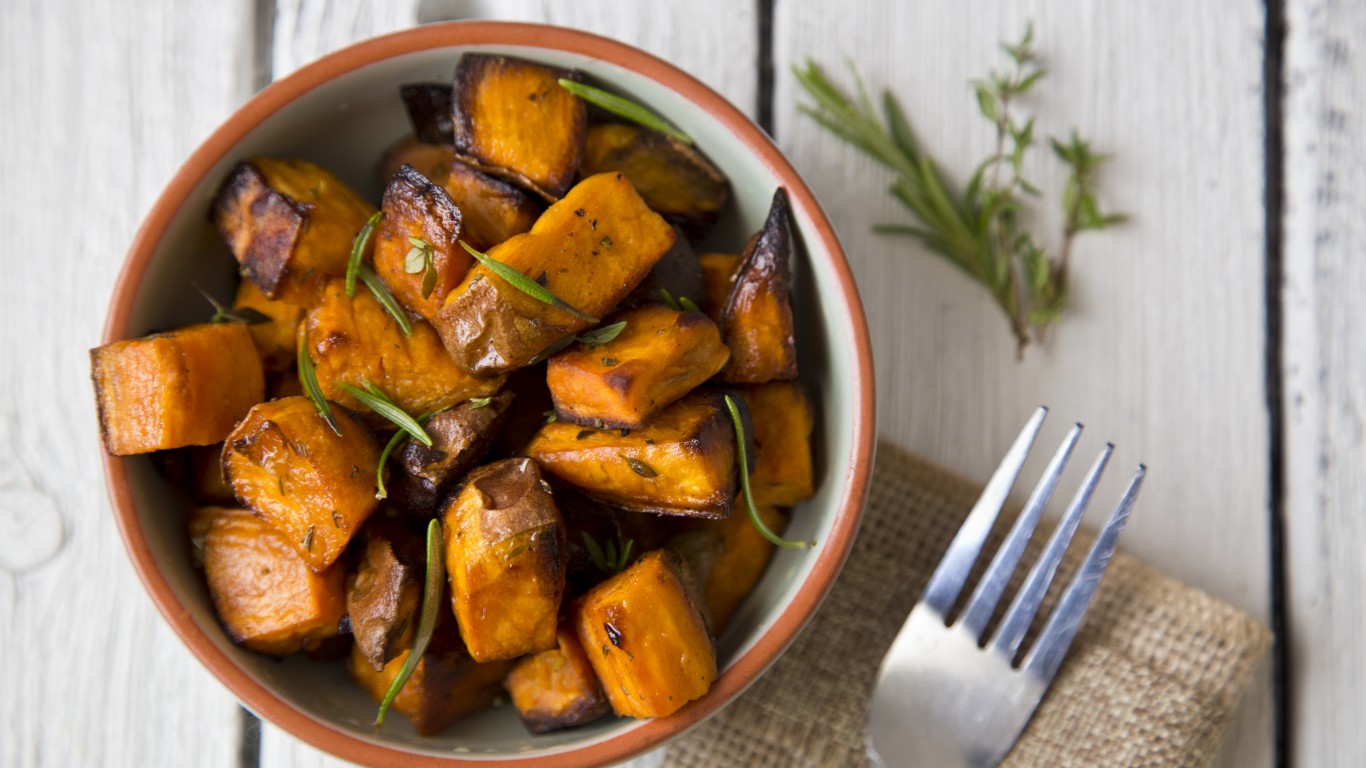
Good: Sweet potatoes
Like other orange foods that promote eye health, sweet potatoes are rich in beta carotene, which may slow age-related macular degeneration, Sheren said. The body turns beta carotene into vitamin A, which helps prevent dry eyes and night blindness.
Good: Beets
Beets contain lutein, an antioxidant that helps protect the eyes from age-related macular degeneration and cataracts. Don’t throw away the green leaves, though. Just one cup of beet greens contain nearly 0.3 micrograms of lutein. Some experts say the recommended amount a day should be about 6 mg.
[in-text-ad-2]

Good: Water
Dehydration is a chronic problem among people. “As far as the eyes go, it exacerbates dry eyes, but it doesn’t cause permanent damage,” Sheren said. Dry eyes is a condition in which the surface of the eyes lacks sufficient lubrication and moisture. The eyes need that fluid to wash away debris and dust when you blink.
Good: Squash
Squash is rich in vitamins A and C, which is what you want in eye-friendly foods, Sheren said. Butternut squash also contains lutein, zeaxanthin, and beta-carotene, all of which help protect your eyes from harmful ultraviolet rays from the sun.
[in-text-ad]
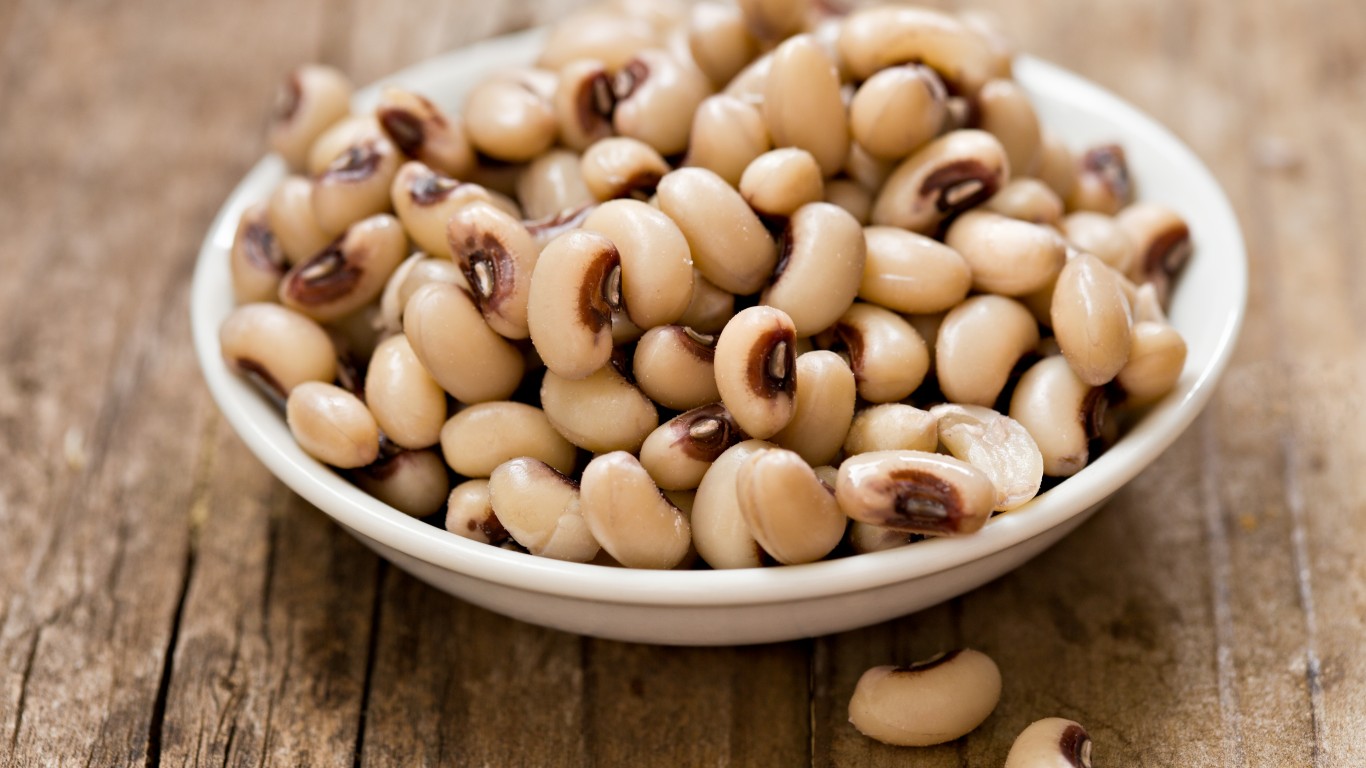
Good: Legumes
Legumes, such as beans and black eyed peas, are rich in bioflavonoids and zinc, which help protect the retina, thus lowering the risk of developing macular degeneration and cataracts.
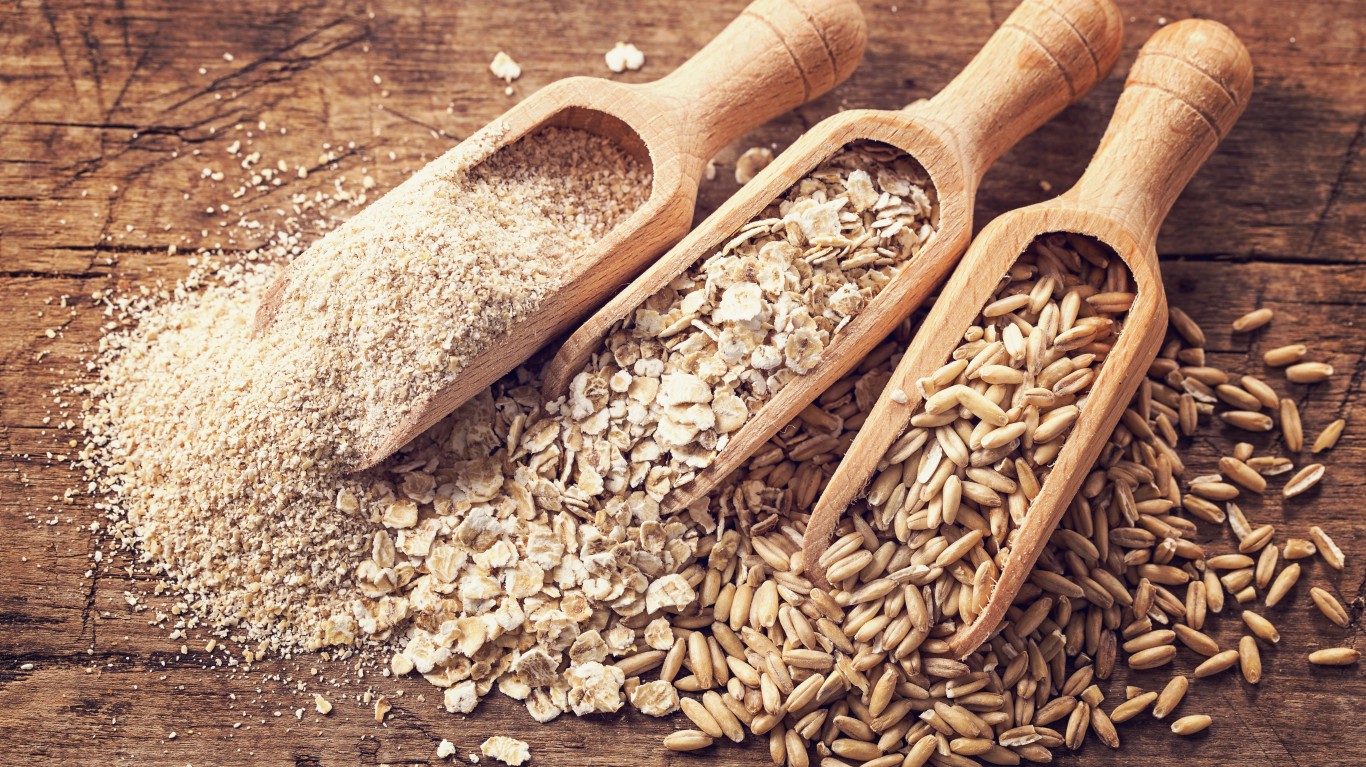
Good: Whole grains
You want to eat less refined grains and more whole grains, Sheren said. They are high in antioxidants and lutein, as well as zinc, which acts as an anti-inflammatory and protects the eye tissue from light, he noted.
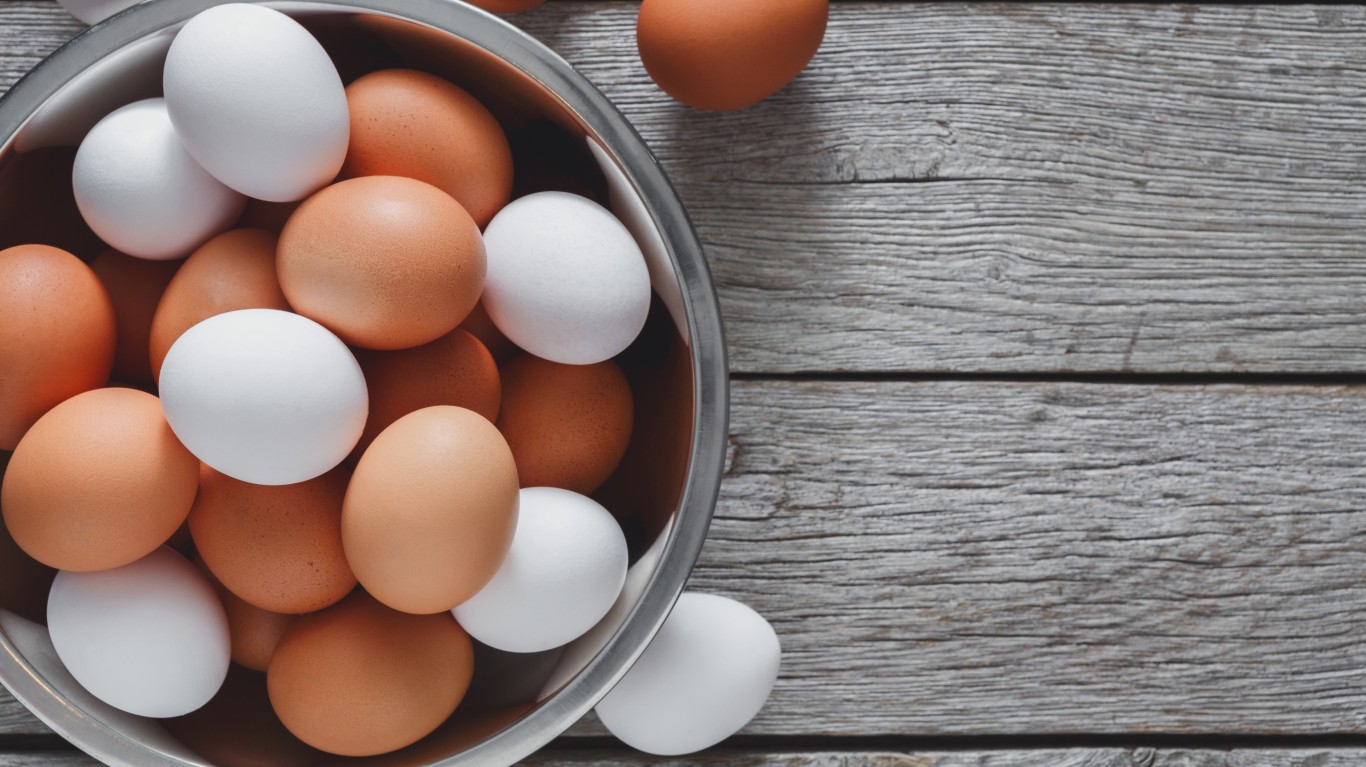
Good: Eggs
Eggs are controversial when it comes to eye health, Sheren said. They contain some saturated fat, which you want to avoid, but also a lot of nutrients that help protect the eyes. The yolks are a rich source of vitamin A, lutein, zeaxanthin, and zinc, all of which are good for healthy eyes.
[in-text-ad-2]
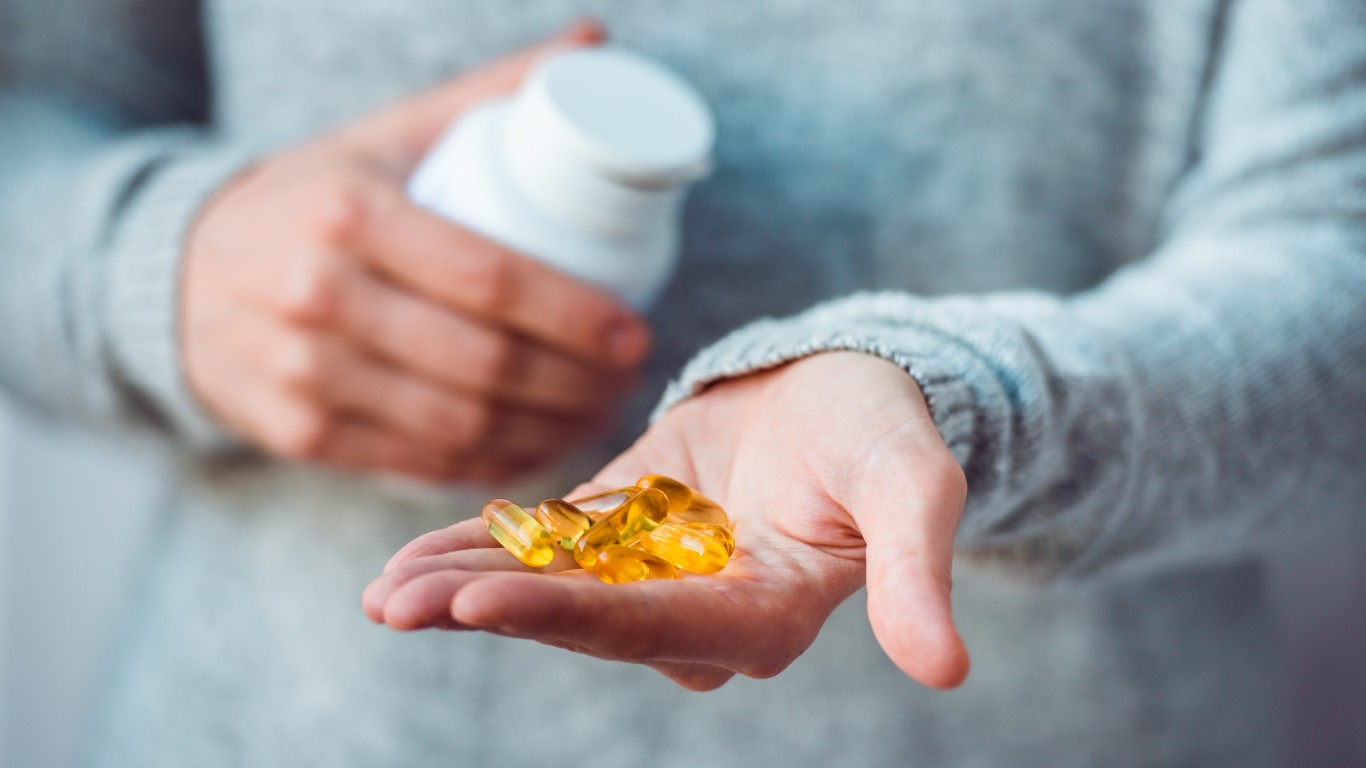
Maybe: Supplements
Studies about supplements and their eye-related benefits are not conclusive, Sheren said. Some research has shown that they have a positive effect only in patients who already have age-related macular degeneration. “They did better in the long-term as their eyesight improved,” he noted. But supplements won’t improve the vision of a healthy person. “If patients did not have the disease, supplements made no difference at all,” Sheren added.
Credit Card Companies Are Doing Something Nuts
Credit card companies are at war. The biggest issuers are handing out free rewards and benefits to win the best customers.
It’s possible to find cards paying unlimited 1.5%, 2%, and even more today. That’s free money for qualified borrowers, and the type of thing that would be crazy to pass up. Those rewards can add up to thousands of dollars every year in free money, and include other benefits as well.
We’ve assembled some of the best credit cards for users today. Don’t miss these offers because they won’t be this good forever.
Flywheel Publishing has partnered with CardRatings for our coverage of credit card products. Flywheel Publishing and CardRatings may receive a commission from card issuers.
Thank you for reading! Have some feedback for us?
Contact the 24/7 Wall St. editorial team.
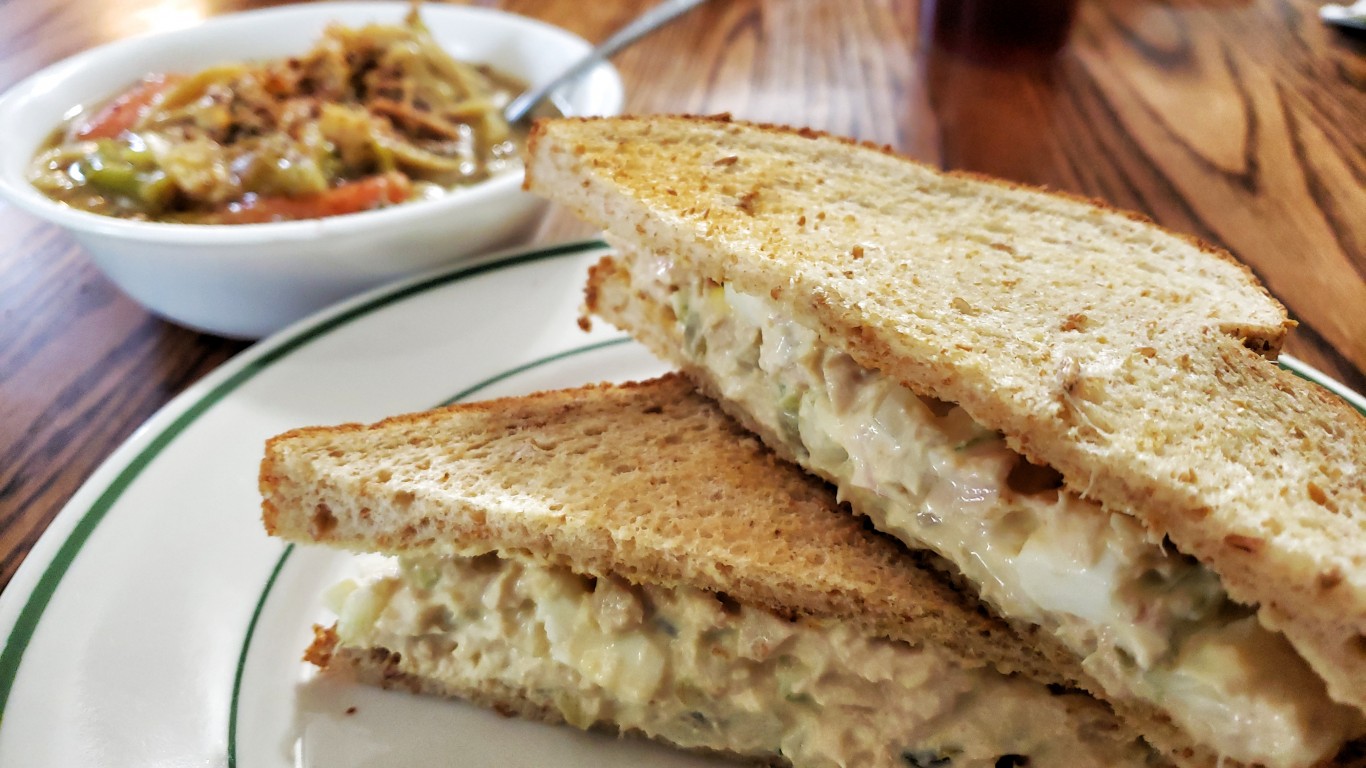
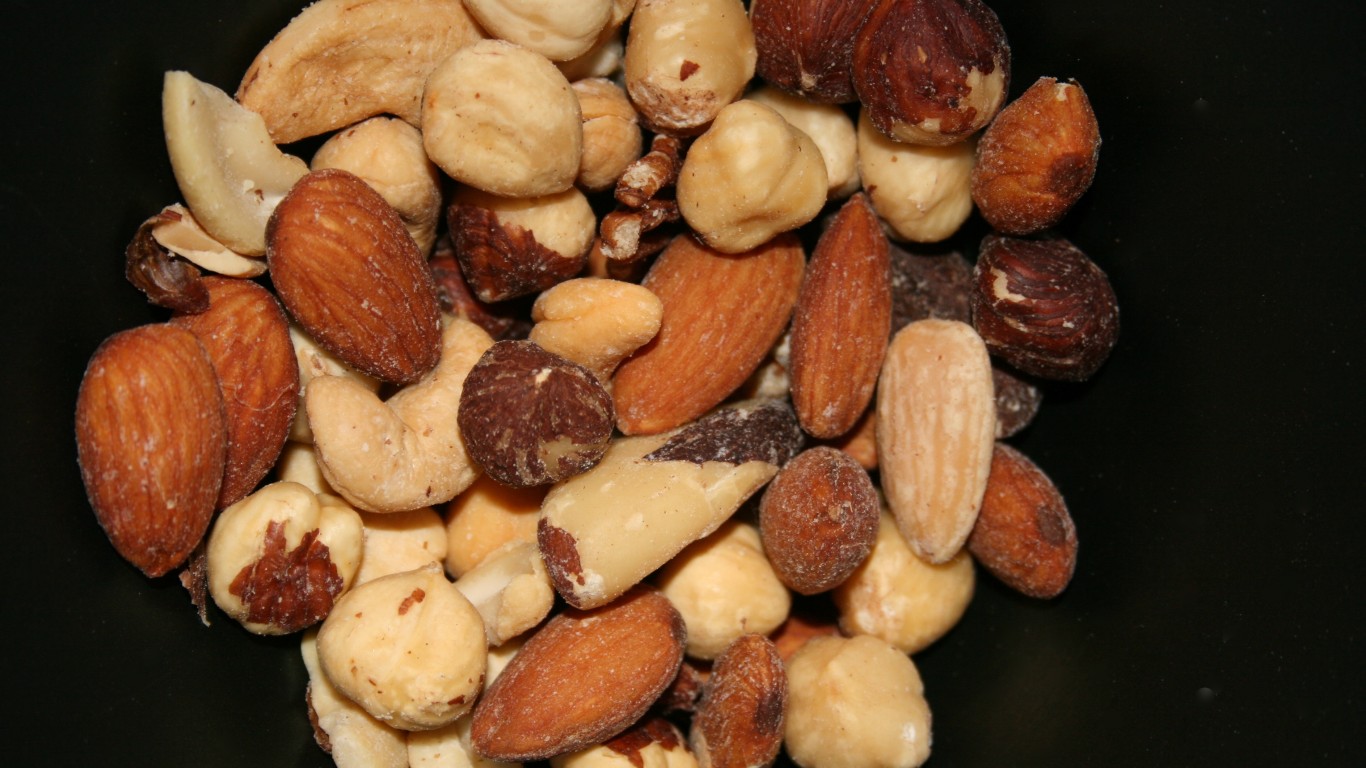
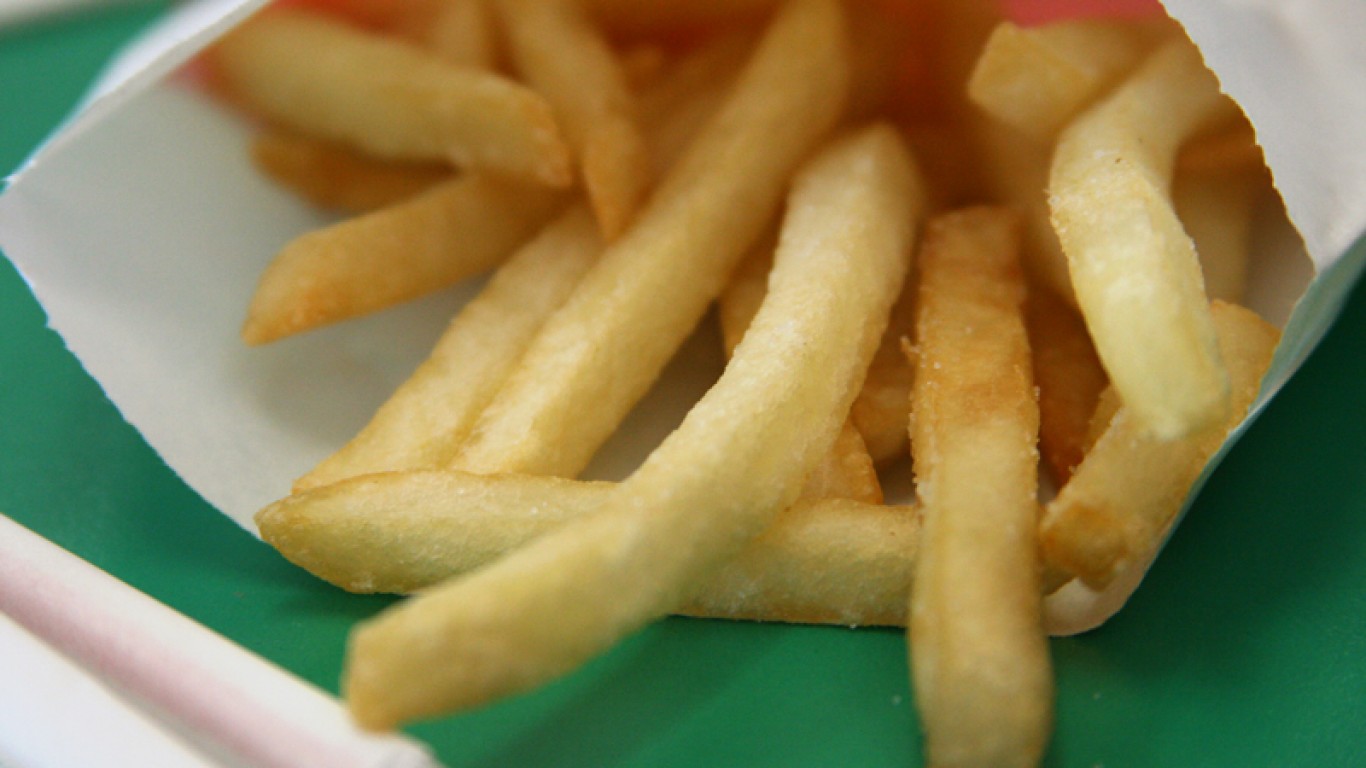
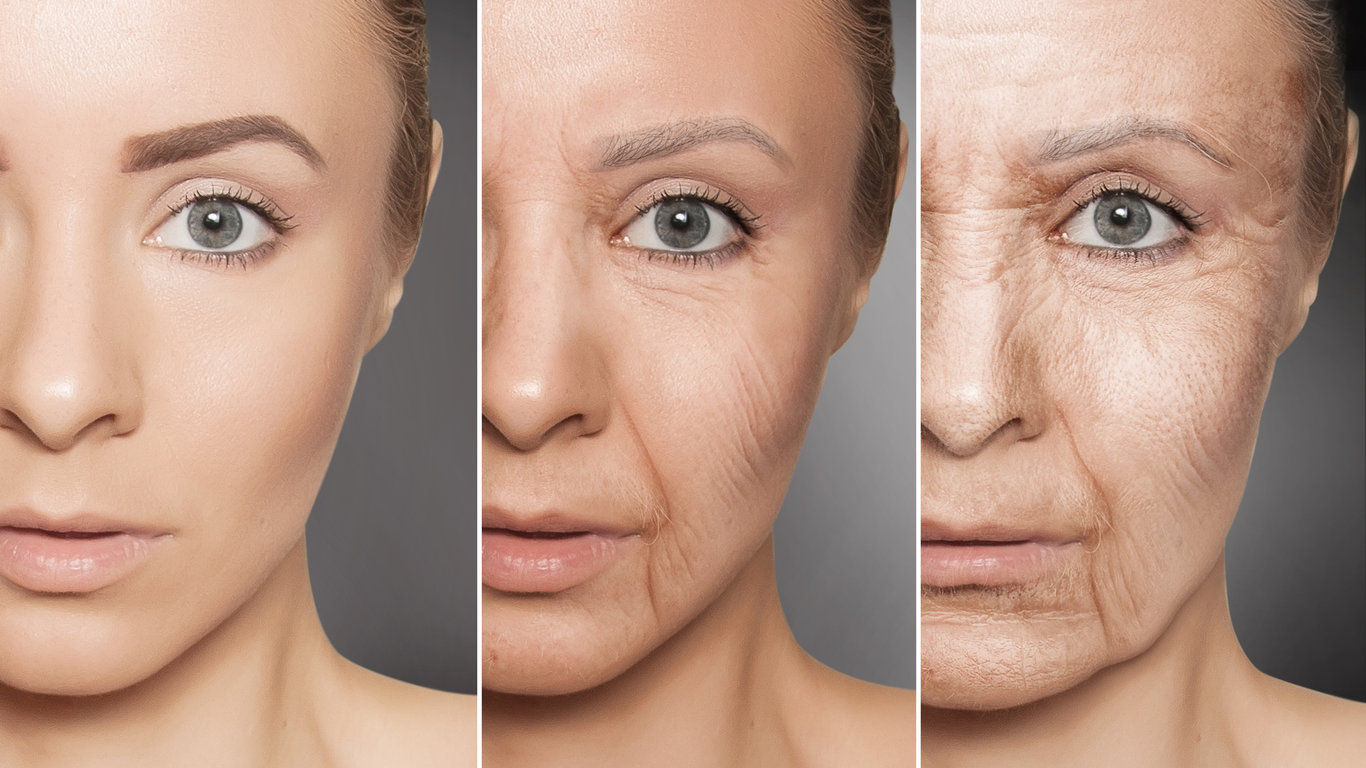 24/7 Wall St.
24/7 Wall St.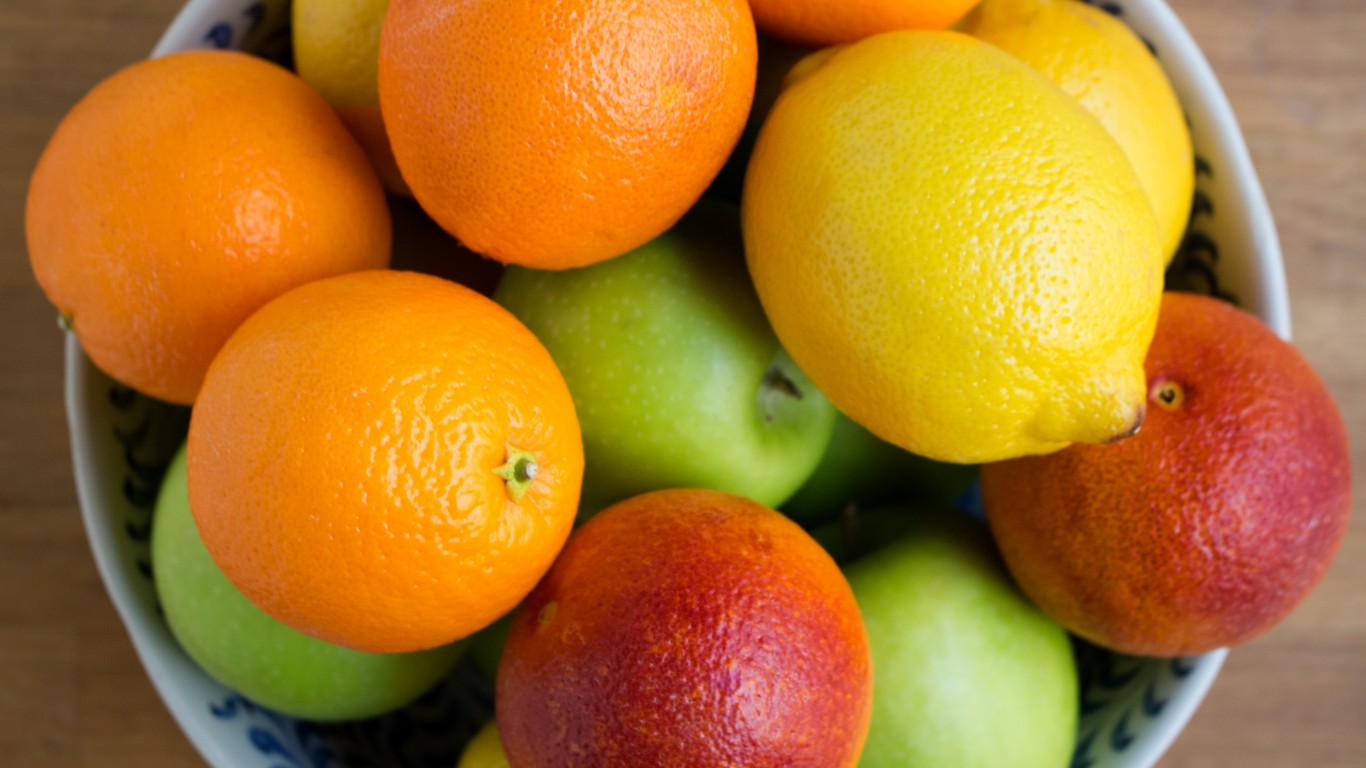
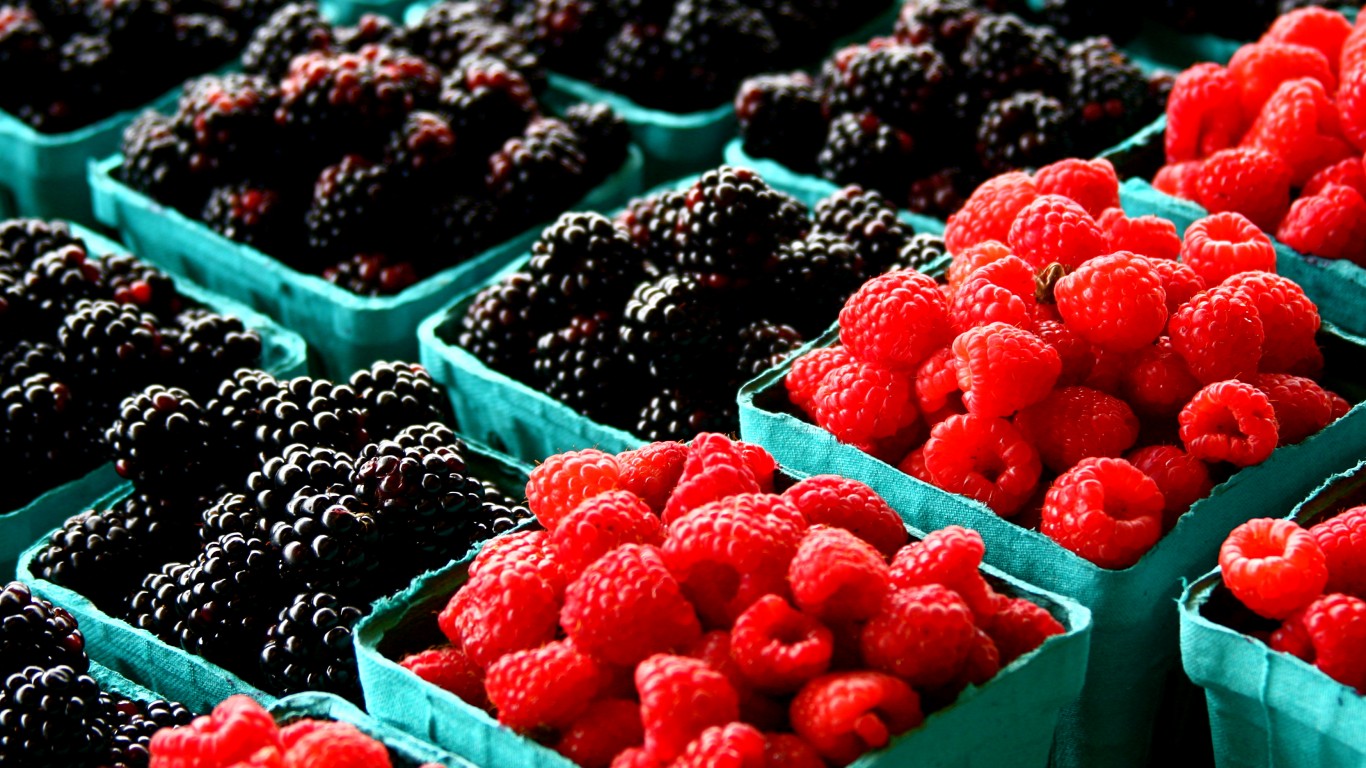
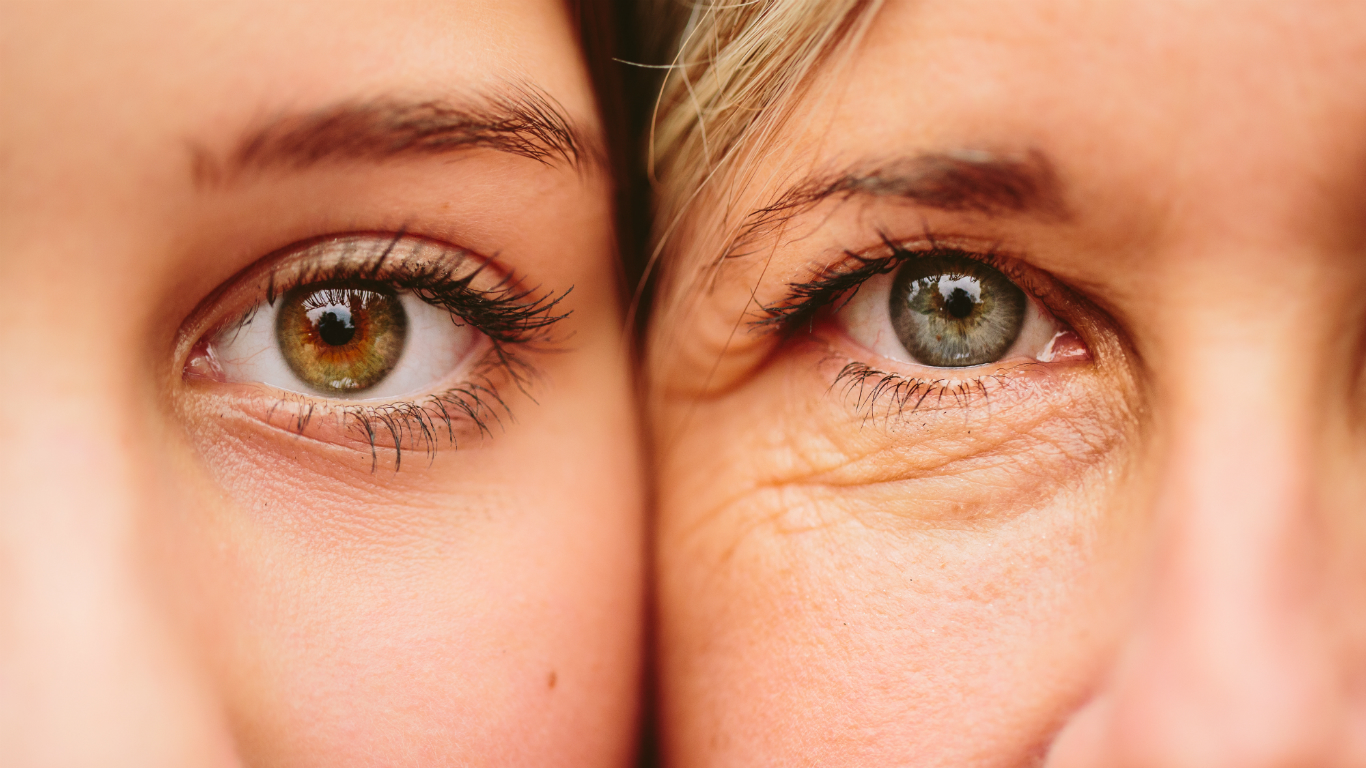 24/7 Wall St.
24/7 Wall St.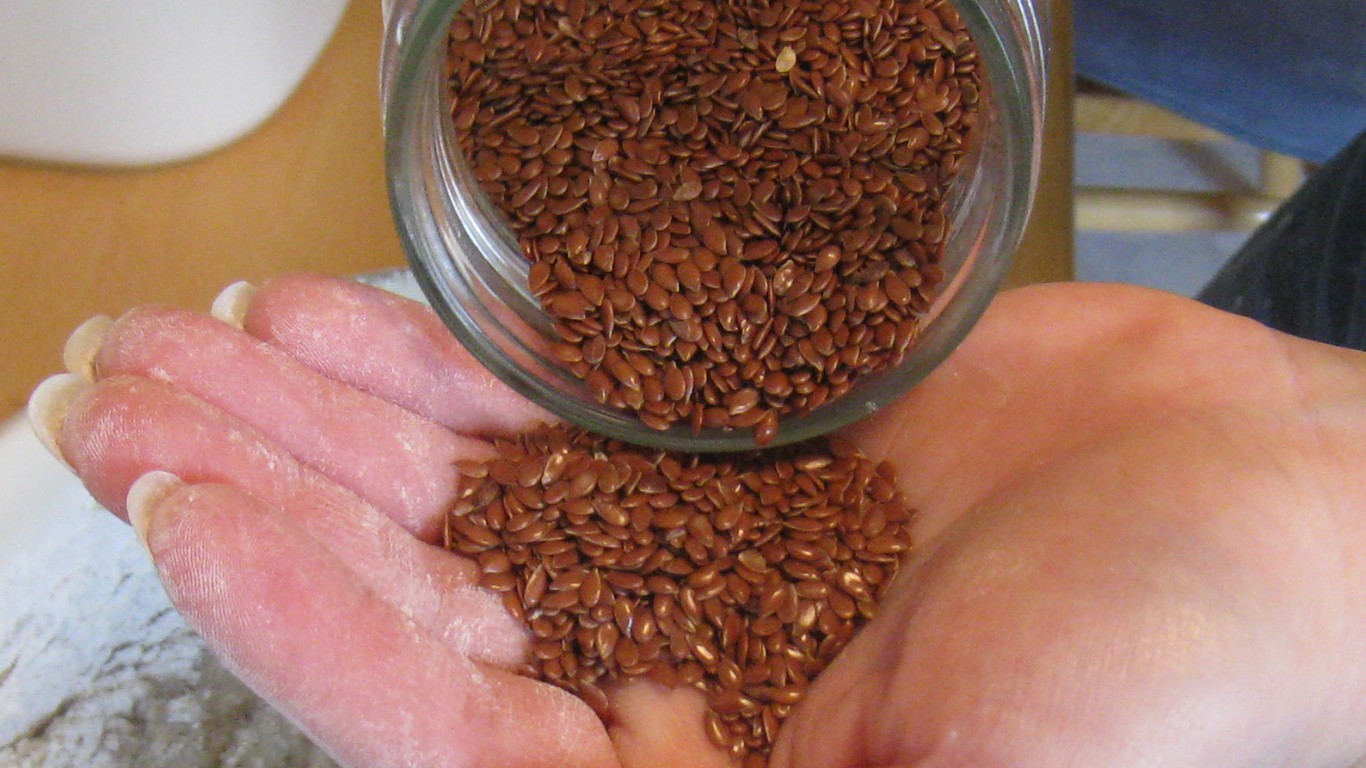
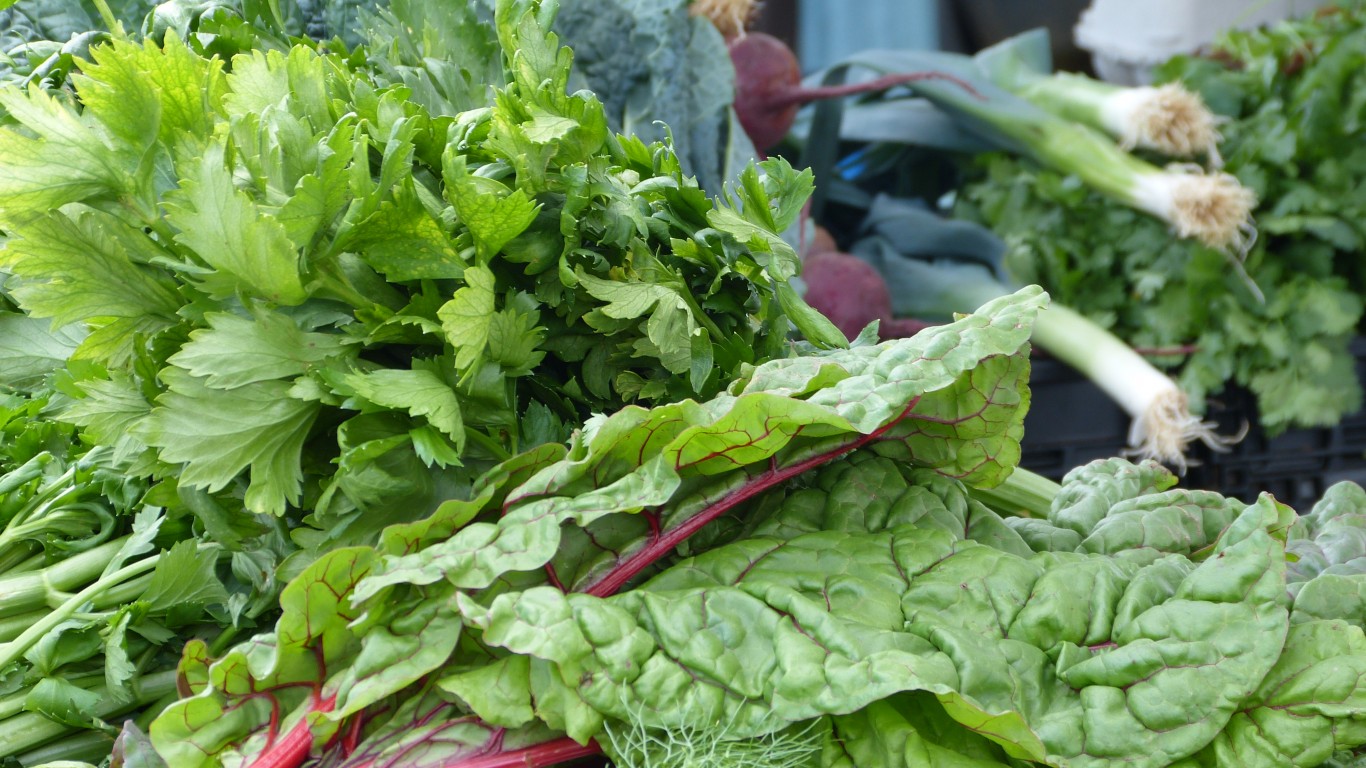
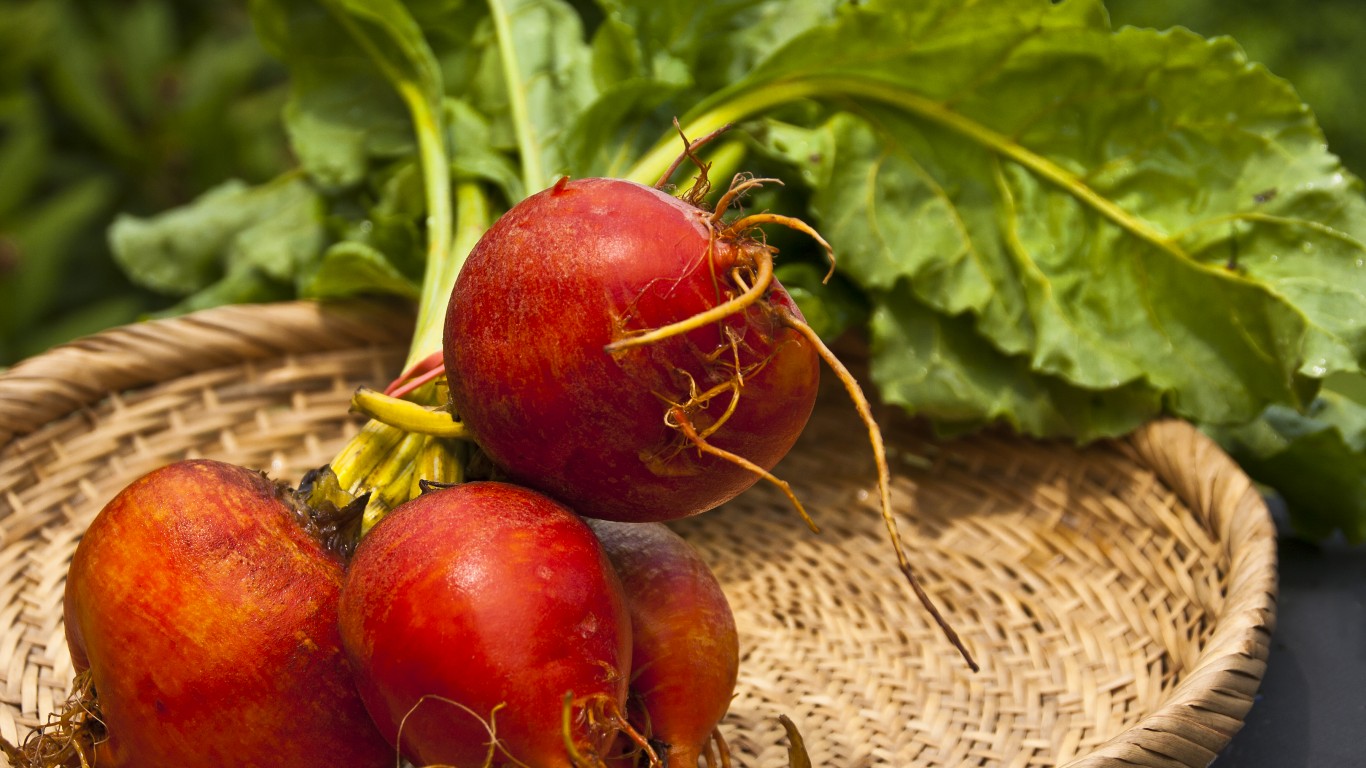
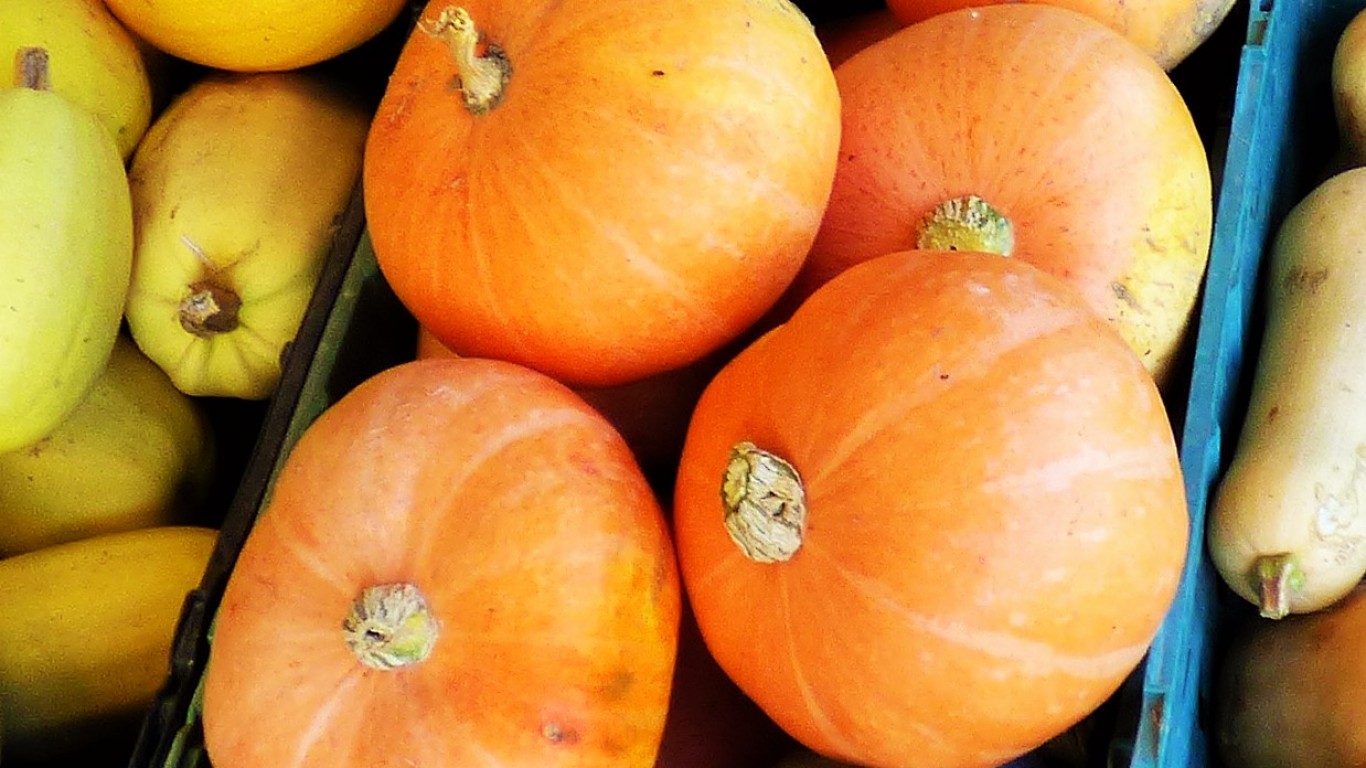
 24/7 Wall St.
24/7 Wall St.
